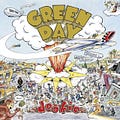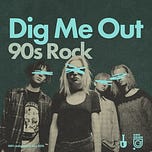On February 1, 1994, Green Day unleashed Dookie, a fast-paced, 39-minute burst of punk energy that would become a defining moment for both the band and the pop-punk genre. The album arrived during a significant cultural shift in music. Kurt Cobain’s tragic death just ten months earlier had left a void in the grunge-dominated scene, and alternative rock fans, particularly Generation X, were searching for something new. MTV was still the kingmaker in the music world, constantly breaking new artists and sounds. Yet, the moody, introspective tones of grunge were beginning to feel overplayed, and listeners were ready for a fresh wave of sound—something loud, fun, and unapologetically raw.
Green Day, a scrappy trio from Rodeo, California, had been building momentum for years, far from the mainstream spotlight. Formed in 1987 by high school friends Billie Joe Armstrong and Mike Dirnt, the band had carved out a space for themselves in the Bay Area’s underground punk scene. They were regulars at the legendary Gilman Street club in Berkeley, the epicenter of Northern California’s DIY punk movement. Their early releases on Lookout Records, including Kerplunk (1991), had built them a loyal following, but mainstream success seemed a distant dream. That began to change when drummer Tré Cool joined the band, solidifying the lineup and bringing a new intensity to their sound.
By 1994, Green Day had taken a major leap, signing with Reprise Records. This move was controversial within the punk community, with accusations of “selling out” swirling around them. But Green Day wasn’t content with remaining in the underground. Their sound had evolved, and they wanted to bring their mix of punk aggression and melodic hooks to a wider audience. Enter Dookie, the album that perfectly balanced the punk ethos they’d honed with pop sensibilities that would catapult them to superstardom.
The Pop Punk Explosion
The release of Dookie was the spark that ignited the pop-punk explosion of the mid-90s. At the time, the only way a radio listener or MTV viewer could avoid Dookie’s massive singles—“Basket Case,” “Longview,” “Welcome to Paradise,” and “When I Come Around”—was to be living in a remote jungle or stranded on the moon. The album’s infectious hooks and raw energy were inescapable, perfectly capturing the disaffected angst and boredom of suburban youth. Green Day’s arrival in the mainstream unseated grunge as the dominant force in alternative music, and they were quickly followed by fellow California punk bands like The Offspring, who released Smash just months later. This wave of success opened the door for other punk bands, including Rancid, NOFX, and Jawbreaker, to get signed to major labels, with Dookie acting as the blueprint for how punk could thrive in the mainstream.
Dookie wasn’t just a commercial success—it was a sonic revelation. Producer Rob Cavallo helped Green Day fine-tune their sound without losing their punk energy. The guitars, bass, and drums on Dookie felt sharp and explosive, leaping out of the speakers in a way that retained the rawness of their DIY days but with a clarity that made the songs irresistible. Thirty years later, Dookie retains that same vitality. The songs remain fresh, showcasing the chemistry between the band’s rhythm section—drummer Tré Cool and bassist Mike Dirnt—who drive the album forward with precision and punch, while Armstrong’s lyrics and harmonies elevate the album into something truly special.
The Sound of Dookie
What set Dookie apart was its ability to marry punk aggression with pop sensibilities in a way that felt authentic and accessible. Tracks like “Longview” and “Basket Case” showcased Armstrong’s knack for crafting relatable, catchy lyrics about anxiety, boredom, and youthful frustration. Green Day’s sound was rooted in punk, but they weren’t afraid to push beyond genre boundaries. The band found the perfect collaborator in Rob Cavallo, who helped dial in the guitar, bass, and drum sounds to perfection. Together, they created an album that was fast, melodic, and unapologetically fun.
The rhythm section of Tré Cool and Mike Dirnt was a crucial ingredient in Dookie’s success. Dirnt’s basslines, particularly on songs like “Longview,” were complex and melodic, often driving the songs more than Armstrong’s guitar. Meanwhile, Cool’s drumming was tight and precise, injecting each track with an undeniable energy. This rhythmic lock-step between bass and drums gave Dookie a power that set it apart from other albums at the time. Songs like “When I Come Around” and “Welcome to Paradise” balanced catchy hooks with gritty punk energy, creating tracks that could move seamlessly between alternative radio and the top 40 charts.
The Legacy of Dookie
By the end of 1994, Dookie had transformed Green Day from a local punk band to international rock stars. The album sold over 10 million copies by 1999 and continued to rack up sales well into the 2000s, eventually reaching over 20 million worldwide. Its success didn’t just boost Green Day’s career—it changed the landscape of music. Dookie opened the floodgates for a new generation of pop-punk bands, including Blink-182, Sum 41, and New Found Glory, all of whom took cues from Green Day’s ability to blend punk grit with mainstream appeal.
Green Day’s influence didn’t stop there. Even today, as pop punk experiences a resurgence with artists like Machine Gun Kelly and Olivia Rodrigo borrowing from the genre’s playbook, the echoes of Dookie can still be heard. Its themes of anxiety, disillusionment, and youthful frustration remain relevant to new generations of listeners, making Dookie a timeless album that continues to resonate.
In 1994, Green Day’s Dookie shook up the music world, bringing punk energy to the mainstream and laying the foundation for an entire generation of pop-punk bands. Thirty years later, the album’s punchy riffs, relatable lyrics, and infectious energy are still as captivating as ever. It’s a testament to Green Day’s talent and vision that Dookie remains one of the most beloved and influential albums of the 90s. So if you haven’t spun Dookie in a while, now’s the time—crank it up, sing along, and remember why this album still stands the test of time.
Songs in this Episode
Intro - Burnout
19:35 - Basket Case
37:41 - Longview
42:44 - F.O.D.
47:59 - When I Come Around
Outro - She
Make Your Voice Heard!
In our quest to explore the depths of 90s Rock, we rely on you, our listeners. Your suggestions drive our show – be it an underrated classic or a forgotten gem. By joining our DMO Union on Patreon, you help us stay independent and ad-free and gain the power to vote on and choose the albums we dive into each year. Together, let's unearth the treasures of 90s Rock, one listener-powered episode at a time.
















Green Day - Dookie | 90s Rock Revisited